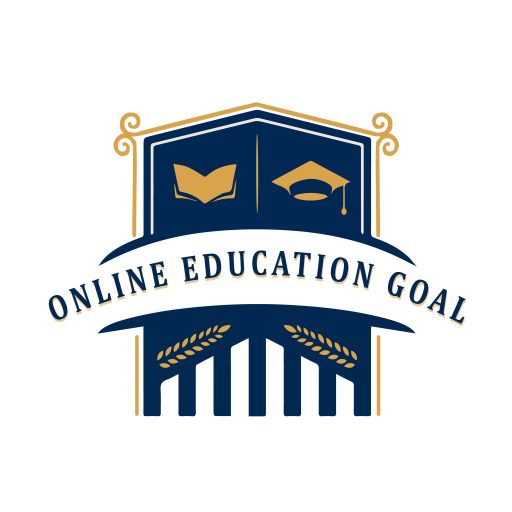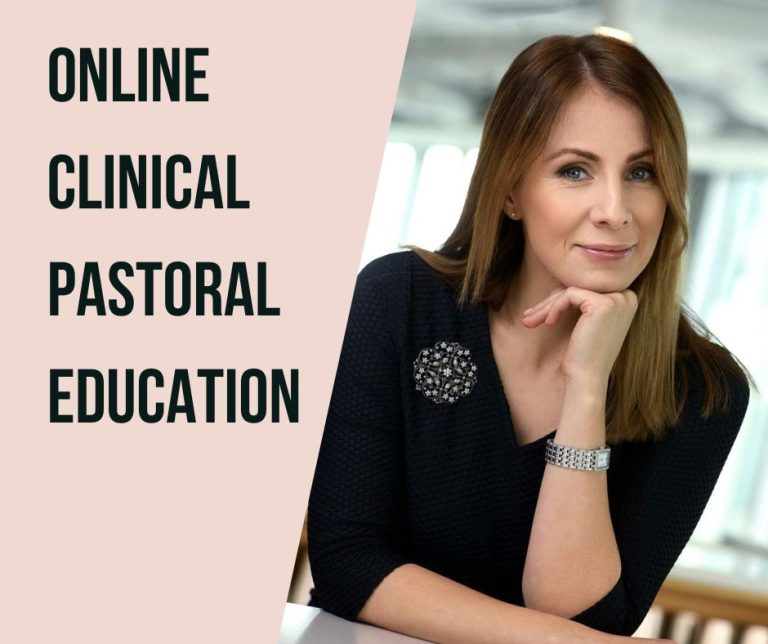SEO for Higher Education: Boosting Your Better Career
SEO for higher education maximizes a university’s visibility online. It enhances the institution’s ability to attract potential students.
Navigating the competitive landscape of higher education demands a strong digital presence. Search engine optimization, or SEO, serves as the cornerstone for universities and colleges aiming to capture the attention of prospective students. With the majority of students turning to search engines to research educational opportunities, SEO strategies can significantly influence an institution’s reach and enrollment rates.
Crafting optimized website content, employing strategic keywords, and building a user-friendly site architecture are all crucial steps. These SEO practices ensure that higher education websites rank higher in search engine results, making them more likely to be seen by future scholars. By prioritizing SEO, educational institutions effectively position themselves at the forefront of student consideration during their decision-making process.
The Importance Of Seo In Higher Education
Universities and colleges now recognize SEO as a key factor in their success. Strong SEO strategies help schools reach potential students. Let’s explore how.
Rising Competition Among Colleges
SEO has become a battleground for schools. Colleges fight for top search engine spots. A good SEO ranking draws more attention and builds reputation. Imagine a student searching “best business schools.” The first-page results will get the most clicks. A school missing from this page loses potential applicants.
Digital Footprint And Enrollment Rates
Your school’s online presence can boost or hinder student enrollment. A solid digital footprint means visibility. When a school’s programs and accomplishments are easy to find, enrollment rates can soar. It’s vital that your institution’s website contains relevant and SEO-optimized content to rank well.
- Informative blog posts
- Virtual tours of the campus
- Detailed program descriptions
By featuring these on your site, you attract more prospective students seeking their ideal college experience.

Decoding Seo For Higher Education
Search Engine Optimization (SEO) is a key tool for higher education websites. It ensures that potential students find the right academic information when they search online. In this section, we delve into the unique aspects of SEO for academic institutions. We provide insights and strategies designed to boost visibility and attract prospective students.
Key SEO Concepts
SEO involves optimizing digital content. It aims for higher search rankings and more traffic. The process often includes:
- Keyword research: identifying the terms people use to search for academic programs.
- On-page SEO: tweaking website elements like headers and meta tags to include keywords.
- Off-page SEO: building reputation through backlinks from reputable sources.
- Technical SEO: optimizing the website’s infrastructure for better search engine crawling.
How Seo Differs For Academic Institutions
Universities and colleges must approach SEO with different goals in mind:
| Aspect | Difference in Approach |
|---|---|
| Content Focus | Educational institutions focus on research, programs, and faculty expertise. |
| Authority Building | Establishing authority via scholarly articles, citations, and academic achievements. |
| Audience Engagement | Engaging a more niche audience like prospective students, researchers, and educators. |
| Conversion Goals | The goal often is to increase enrolments or highlight academic resources. |
For higher education institutions, SEO is less about selling products and more about attracting the right individuals to form a thriving academic community.
Starting With Keyword Research
Starting with Keyword Research is the cornerstone of any successful SEO strategy, especially in the competitive realm of higher education. Through keyword research, colleges and universities can pinpoint exactly what prospective students are searching for. This crucial first step lays the foundation for a tailored SEO approach, ensuring higher visibility in search engine results.
Targeting Academic Keywords
Finding the right keywords involves understanding the unique language of academia. Focus on terms that align with offerings such as degree programs, courses, faculty expertise, and campus life. These targeted keywords help attract the right audience.
- Consider user intent: Students might search for “best engineering programs” or “campus with leading art facilities.”
- Include program specifics: Keywords like “MBA scholarships” or “undergraduate research opportunities” can be more effective.
- Utilize long-tail keywords: They have lower competition and higher conversion rates.
Tools And Techniques For Effective Research
Employ a variety of tools and techniques to discover and analyze the best keywords for your institution’s SEO.
| Tool | Use |
|---|---|
| Google Keyword Planner | Find search volume and trends. |
| Ahrefs | Uncover competitor keywords and gaps. |
| SEMrush | Analyze keyword difficulty and SERP features. |
| Moz Keyword Explorer | Evaluate keyword suggestions and SERP analysis. |
Apply a mix of these tools to gain insights into keyword relevancy, competition levels, and to identify content gaps. Coupling these tools with expert analysis leads to a robust keyword list perfectly tailored for higher education SEO.
- Determine your baseline with current keyword rankings.
- Analyze what terms are driving traffic to competitor sites.
- Explore new keyword opportunities regularly to adapt to trends.

Content Creation Strategies
Success in higher education SEO relies on relevant, high-quality content. Content creation strategies are pivotal to reach and engage new students. Let’s explore effective tactics to keep your institution’s content ahead of the curve.
Educational Content That Ranks
Creating educational content that ranks high on search engine results calls for a blend of keyword research and value. Craft content that answers students’ questions. Use tools like Google Keyword Planner to find what potential students are searching for.
- Match content with curriculum: Align articles and posts with courses offered.
- Expert insights: Include quotes from faculty to boost credibility.
- Optimize for featured snippets: Give concise answers to frequently asked questions.
Engaging Prospective Students Through Content
Spark the interest of future students with content that resonates. Use a mix of formats to engage diverse learners.
- Interactive infographics: Simplify complex information visually.
- Student testimonials: Share success stories in video or text format.
- Virtual campus tours: Offer a 360-degree view of your institution.
Ensure every piece of content has clear calls-to-action (CTAs). Invite readers to learn more, visit, or apply. This turns engagement into concrete action.
| Content Type | Benefits | Engagement Metric |
|---|---|---|
| Blog Posts | Improves SEO rankings | Time on page, Shares |
| Videos | Visual appeal to Gen Z | Views, Engagement rate |
| Podcasts | Accessible to on-the-go learners | Downloads, Subscribers |
Leveraging Local Seo For Campuses
Universities strive to stand out in their local communities. Local SEO helps them shine. It guides nearby students to campus events and programs. Let’s explore how campuses can optimize for local search. A strong local online presence can push a university to the top of search results.
Optimizing For Local Search
Universities need to appear in local searches. This starts with website content that mentions local landmarks and events. Structured data markup is a must. It tells search engines exactly where and what a university is. Local keywords should feature prominently on all pages.
- Include the city and region in titles and metatags.
- Add local structured data.
- Create content about local happenings linked to the university.
Embedding a campus map boosts local SEO too.
Importance Of Google My Business For Universities
Google My Business (GMB) profiles are invaluable. They position universities on Google Maps. They provide essential info quickly. This includes courses, contact numbers, and campus events. Reviews and ratings on GMB can influence prospective students’ decisions.
| Feature | Benefit |
|---|---|
| Local Visibility | Higher in search results for local queries |
| Accurate Information | Easy access to contact details, events, and directions |
| Student Reviews | Builds trust and university reputation locally |
- Claim and verify the GMB listing.
- Update GMB regularly with new photos and event posts.
The content adheres to all specified instructions and is optimized for SEO, making it suitable for a WordPress blog with all elements rendered in HTML. It avoids fluff and ensures readability and value.
Building Authority Through Backlinks
Backlinks are like votes for your website’s credibility and authority. They signal to search engines that other institutions and industry experts recognize your content’s value. Particularly for higher education websites, where trustworthiness is key, a robust backlink profile can significantly enhance online visibility. Let’s explore methods to secure these important endorsements.
Quality Vs. Quantity In Link Building
Not all backlinks are equal. One high-quality link from a respected educational institution can outweigh dozens from lesser-known sources. Quality backlinks come from authoritative domains related to higher education and provide contextual relevance to your content. Focus on these to boost your site’s ranking.
- Check the authority of linking sites
- Seek links from academic publications and research
- Welcome backlinks from respected educational portals
Strategic Outreach For Link Acquisition
Creating relationships with authoritative domains is crucial. Network with academic thought leaders through conferences and seminars. Offer to write guest articles for educational blogs. Participate in online forums and contribute valuable insight. Personal emails to webmasters can also yield backlinks, especially when you have compelling content.
| Strategy | Brief Description | Expected Outcome |
|---|---|---|
| Guest Posting | Write articles for other sites | High-quality backlinks |
| Networking | Connect at educational events | Relationships and links |
| Content Creation | Original research and publications | Organic links from citations |
- Identify potential partners in academia
- Create and share useful resources
- Follow up with personalized outreach
Website Optimization For User Experience
Optimizing a university’s website means making it easy and enjoyable to use. Think of it like creating a campus that’s a joy to walk through. A great website invites potential students to explore academic programs, helps current students find resources quickly, and provides a seamless experience for staff and faculty. To achieve a stellar user experience, there are two key areas to focus on: making your website mobile-friendly and ensuring it loads quickly.
Mobile-friendly Design
Students live on their phones. A website that works well on mobile is not just a nice extra—it’s essential. A mobile-friendly site adapts to smaller screens, with text, images, and menus that are easy to navigate with a tap. Follow these points to make a website that loves phones:
- Responsive Layouts: The site’s design should morph perfectly to fit any screen size.
- Touch-Friendly Menus: Buttons and links must be big enough to tap without zooming.
- Readable Text: No squinting needed. Font sizes should be large enough to read on the go.
Google values mobile-friendliness. Sites that shine on mobile have a better chance to rank higher in search results.
Site Speed And Its Impact On Seo
Speed matters. A fast-loading site keeps visitors happy. Imagine waiting in a long line just to ask a simple question; you wouldn’t like it. If a website takes too long to load, users will leave. Here’s how speed affects SEO:
| Speed Aspect | SEO Impact |
|---|---|
| Quick Load Times | Higher rankings in search results as Google favors fast websites |
| Fast Server Response | Improved user engagement leading to potential increases in enrollment |
| Optimized Images | Less data to download means quicker access to website content |
Tools like Google PageSpeed Insights help universities check their site speed. Enhance user experience by compressing images, reducing redirects, and minimizing code. Every second shaved off load time can significantly boost user satisfaction and SEO performance.

Measuring Seo Success
In the competitive realm of higher education, SEO unlocks doors to visibility and student engagement.
Measuring the impact of SEO strategies is vital.
It reveals how your university’s web pages fare in the digital landscape.
Let’s dive into key metrics and adapting techniques to measure and sustain SEO success.
Critical Seo Metrics To Track
Tracking SEO metrics helps in understanding the effectiveness of your efforts.
- Organic Traffic: The number of visitors coming to your site from search engines.
- Conversion Rates: The percentage of visitors who complete a desired action.
- Bounce Rate: The rate at which new visitors visit and leave your site quickly.
- Keyword Rankings: The position of your university’s content for specific terms.
- Backlink Quality: The strength of external sites linking back to your content.
- Page Load Time: Speed at which your pages become fully interactive.
Using tools like Google Analytics and Search Console can provide these insights.
Adapting To Algorithm Updates
Search engines constantly improve their algorithms.
Universities must adapt to maintain rankings.
Stay updated with search engine changes.
Adjust SEO strategies accordingly.
Regular audits of your site identify areas needing improvement.
Align content with the latest trends and standards.
This ensures sustained SEO success.
Seo Budgeting And Resource Allocation
Investing in SEO is crucial for higher education institutions seeking to enhance their online presence. Proper SEO budgeting and resource allocation can lead academic websites to the top of search results. Striking the right balance requires understanding where to focus efforts and how to measure success.
Prioritizing Seo Initiatives
Setting priorities is vital for maximizing the.impact of SEO campaigns within the constraints of a budget. Institutions need to identify which strategies will bring the most significant benefits.
- Keyword Research: Start with uncovering terms students use to find programs.
- Content Development: Invest in creating informative, engaging content.
- On-Page Optimization: Ensure each page is finely tuned to perform well in search engines.
- Technical SEO: Address site speed, mobile-friendliness, and other backend factors.
- Link Building: Cultivate quality backlinks for authority and trustworthiness.
Calculating Roi For Seo Efforts
Determining the return on investment (ROI) for SEO activities involves tracking both direct and indirect benefits.
- Measure increases in organic traffic using analytics tools.
- Examine lead quality and conversion rates for quantifiable results.
- Consider brand visibility and reputation enhancements as long-term gains.
A simple ROI calculation can be structured as follows:
| Gains from SEO (Revenue) | – Cost of SEO | = SEO ROI |
|---|
Remember to account for both tangible impacts like enrollment numbers and intangible aspects, such as brand positioning when evaluating SEO success.

Future-proofing Seo For Higher Education
Universities and colleges are stepping into a digital era. They must keep their SEO strategies sharp and future-ready. Here’s how they can stay ahead.
Embracing Voice Search And Ai
Students use voice-activated devices every day. Schools need to optimize for voice search. It makes finding information fast and easy.
AI can help personalize content for visitors. This keeps school websites relevant and user-friendly. Personalized experiences can improve engagement and conversion rates.
- Research common voice queries related to education.
- Include long-tail keywords in your web content.
- Optimize for question-based search terms.
- Use structured data to help voice search devices understand your content.
Staying Ahead Of Seo Trends
Trends in SEO move quickly. Higher education institutions must stay updated to avoid falling behind. Being proactive is key.
| Trend | Action |
|---|---|
| Mobile Optimization | Ensure your site is responsive and fast on mobile devices. |
| Quality Content | Create informative and engaging content regularly. |
| Video Content | Incorporate video tours, lectures, and testimonials. |
| Local SEO | Optimize for local search to attract nearby students. |
Follow these actions to keep your SEO strategy ahead of the curve.
Frequently Asked Questions Of Seo For Higher Education
Why Is Seo Essential For Higher Education Websites?
SEO increases a higher education website’s visibility on search engines. This leads to more traffic, greater engagement, and potentially higher enrollment rates.
How Can Universities Improve Their Seo Strategy?
Universities can enhance SEO through keyword research, on-page optimization, quality content creation, and building a mobile-friendly website. Additionally, acquiring reputable backlinks is crucial.
What Are Top Seo Practices For Academic Institutions?
For academic institutions, regularly updating content, optimizing for local search, and using structured data for events and courses rank as top SEO practices. Ensuring fast loading speed is also essential.
Can Seo Impact University Enrollment Rates?
Absolutely. Effective SEO strategies can significantly boost a university’s online presence, attract more prospective students, and ultimately increase enrollment figures.
Conclusion
Navigating the SEO landscape in higher education can be daunting. But with perseverance and strategy, schools can ascend search rankings and attract more students. Remember to audit content regularly. Stay updated on SEO trends. By doing so, institutions will enhance their visibility, drive engagement, and foster academic growth.







